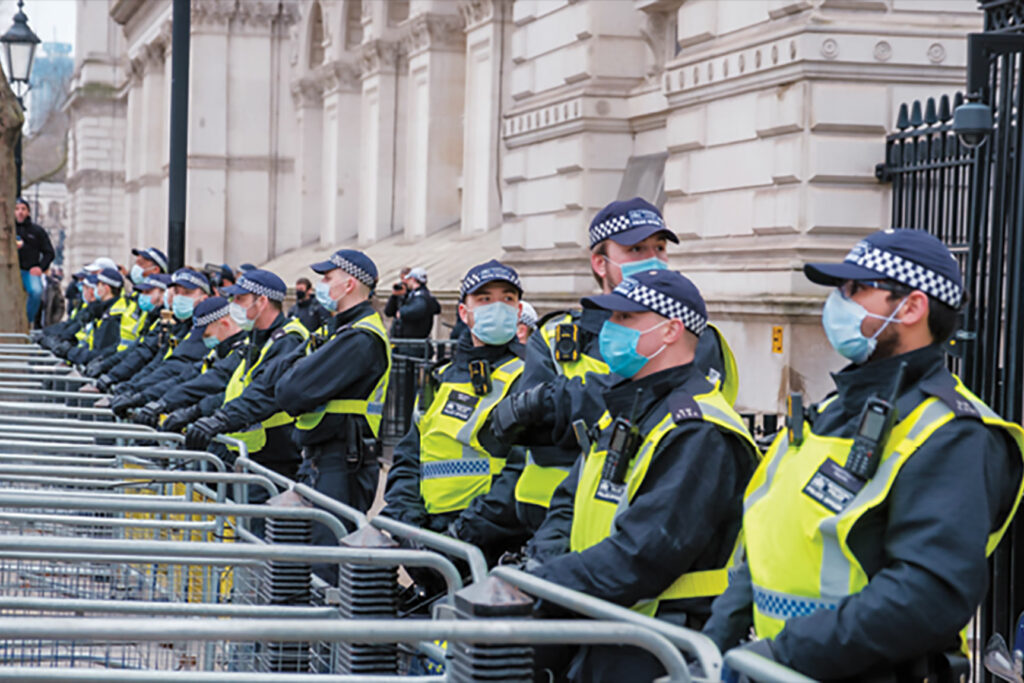COVID-19, Counterterrorism, and Emergency Law
Report Prepared Under the Aegis of the Mandate of the Special Rapporteur
PUBLISHED: MAY 2023
The below is summarized from the UNSR’s report.
Even before the COVID pandemic, the United Nations Special Rapporteur (UNSR) on the promotion and protection of human rights and fundamental freedoms while countering terrorism, Fionnuala Ní Aoláin, has regularly voiced her concerns about the use of emergency powers and their impact on both the rule of law and human rights. From the beginning of the pandemic, the UNSR and other mandate holders recognized the dangers posed to the rule of law by the use of emergency powers by States.
This report, from the UNSR, seeks to address the most common ways in which counter-terrorism and security norms have been put in place and makes recommendations to prevent the misuse of emergency powers.

Learn more about the issue and explore ICNL’s analyses on Coronavirus & Civic Space here.
Legal (and non-legal) Bases for Emergency Powers
Governments need a level of flexibility to address emerging threats and exercise their powers to deal with them. In some instances, however, COVID-19 has been treated as less of a public health matter and more of a security threat, resulting in disproportionate and discriminatory actions. When actions that may pose a significant limit to individual rights are needed, it is generally required that States use the formal legal mechanism of derogation. This process is designed to be transparent so that other States and the general public are informed as to what is happening and are given the opportunity to ensure the actions are necessary, proportionate, lawful, and non-discriminatory.
With respect to derogation and emergency powers during the pandemic, this UNSR report finds that:
- States are generally not notifying UN and regional human rights treaty mechanisms of derogations;
- Derogation notifications are not being regularly updated by States commensurate with the changing circumstances of the health pandemic on the ground;
- UN and regional treaty bodies are not yet adequately responding to the lack of notification or the extensive use of de facto emergency powers; and
- Emergency powers are rift and entrenched in national pandemic regulation.
Repurposing Counterterrorism
Terrorism lacks an agreed-upon treaty definition under international law and domestic regulations vary widely. From early in the pandemic, the Special Rapporteur expressed her concern over the use of the pandemic by States to further extend the use of counterterrorism and emergency powers. The pandemic also revealed many national security laws and mechanisms have been adapted under the pretense of responding to the pandemic, including:
- Repurposed cyber security laws;
- Amended criminal law to enforce heavy and disproportionate punishments;
- Applied extensive public order measures to deal with those that violate Covid measures; and
- Adopted or interpreted ordinary legislation in ways that disproportionately and unnecessarily infringe on individual rights.
Accountability
Numerous frameworks exist under domestic and international laws to limit the use of power and ensure that any measures are necessary, proportionate, lawful, and applied in non-discriminatory ways. The structural challenges of overuse and abuse of these emergency laws are evident across the globe. The UNSR report finds several impediments to accountability, including:
- Generic restrictions, such as limits on public gatherings, impacting upon the extent to which civil society can protest government overreach.
- Structural restrictions on decision-making bodies, including access to alternative means of gathering and communication in order to hold governments accountable.
- Absolute restrictions such as shutdowns of communication or media platforms – or other restrictions on freedom of expression under the guise of combatting ‘fake news.’
- Designed restrictions, for example, where parliaments were rescinded because of Covid-19, and lawyers and judges were not deemed essential workers.
The Risk of Normalizing the Exception
Where exceptional measures are taken during times of emergency, the risks extend beyond the immediate adverse impacts on the enjoyment of rights. Once the exception has become the norm, the distinction between normal and exceptional conditions has broken down. There are numerous ways in which emergency measures can endure after the risk has lapsed, including:
- Emergency measures adopted without a clear legal basis are largely discretionary and subject to little oversight.
- When counterterrorism, security, and normal laws are repurposed, their use has consistently demonstrated a permanence that has been virtually impossible to dislodge.
- Even where there is a legal basis, significant issues arise, like problems of accountability and scrutiny addressed previously necessarily feed into the potential normalization of emergency measures.
- It is not always clear when emergency laws terminate. Even where sunset clauses are included in the law, this is not a guarantee for an effective review process or cessation of emergency legislation.
Find detailed examples of these issues and the Special Rapporteur’s full recommendations by downloading the UNSR full report here.
The International Center for Non-For Profit Law (ICNL) and the European Center for Non-For Profit Law (ECNL) is proud to support this important work by Professor Fionnuala Ní Aoláin.
Sign up for our newsletters
Sign up